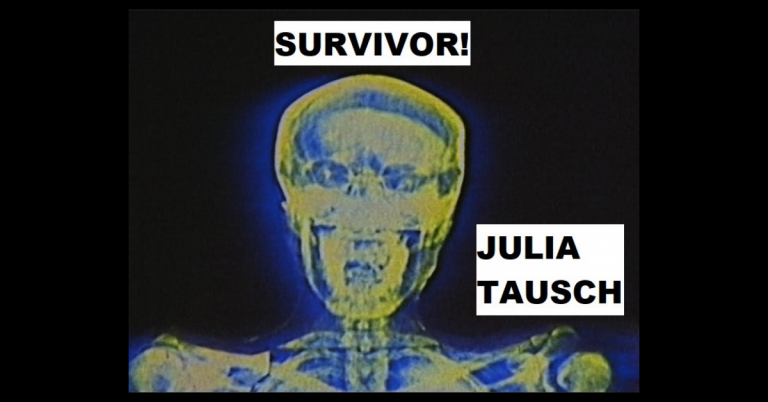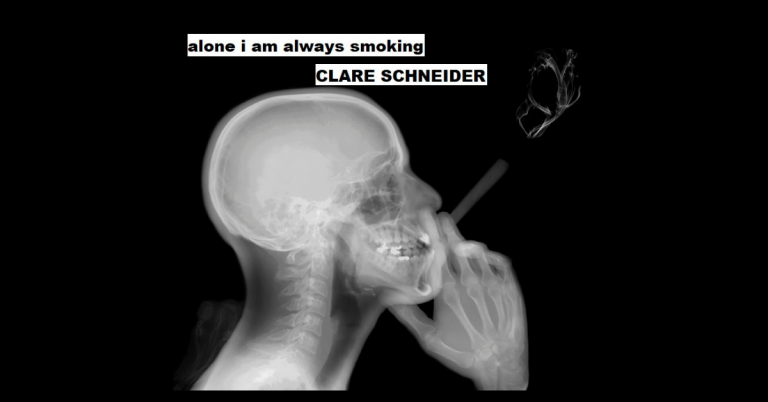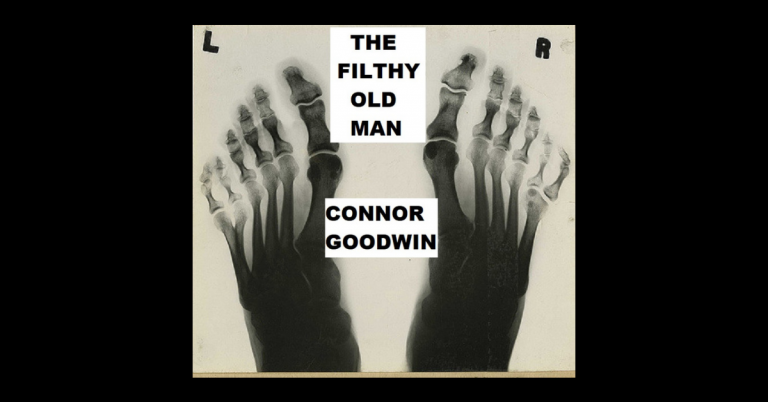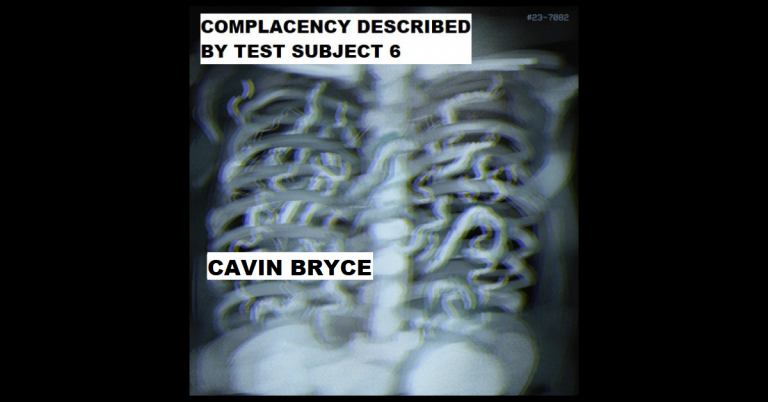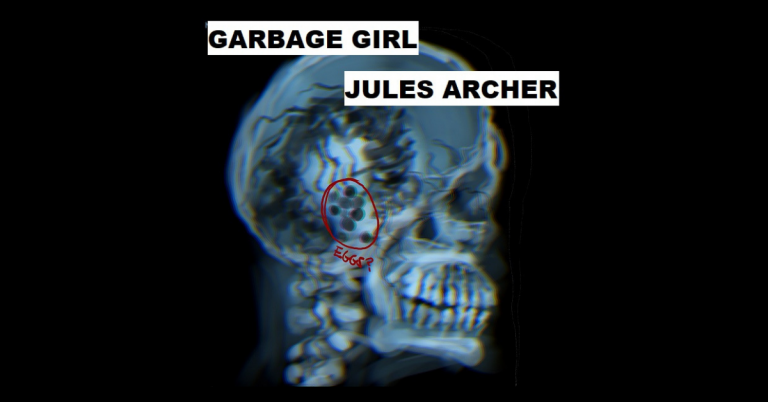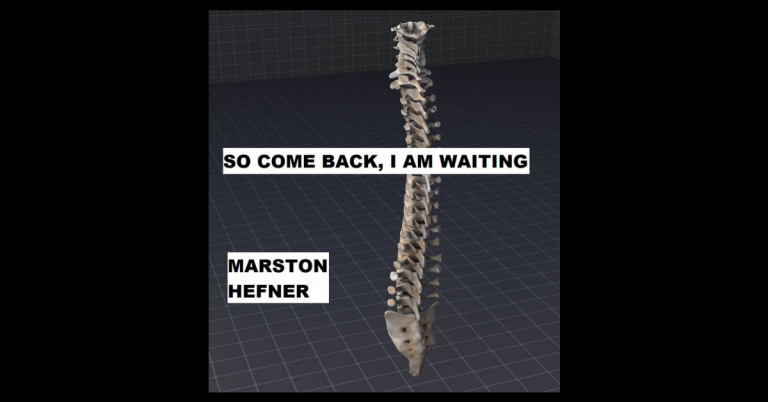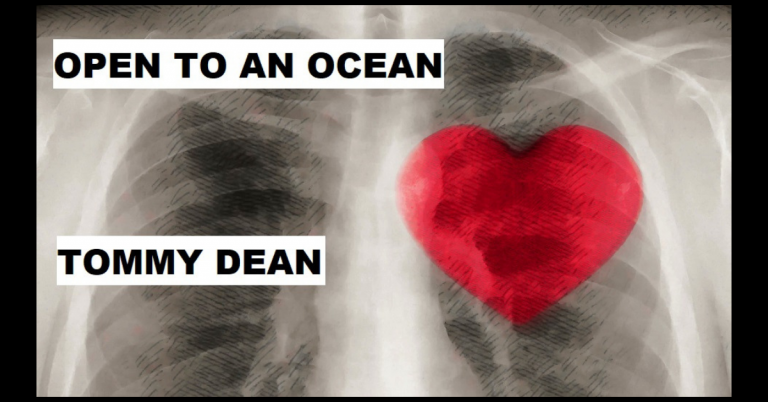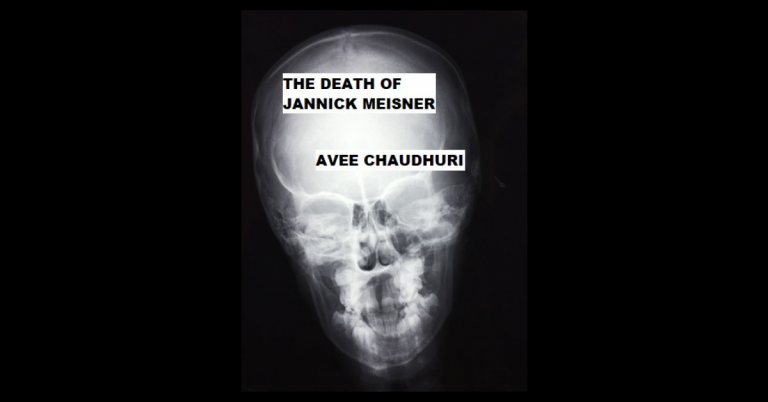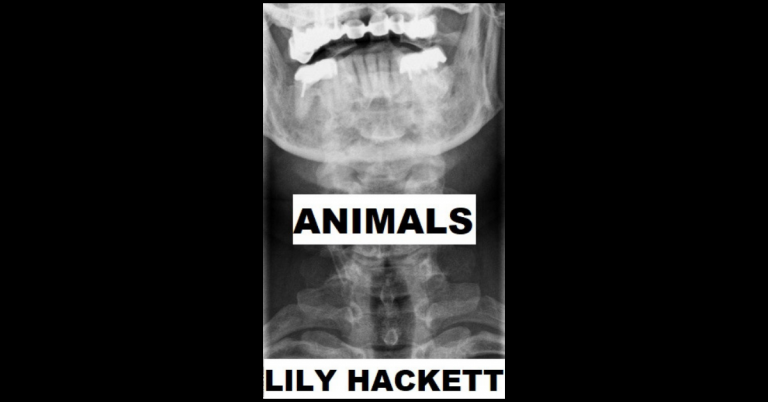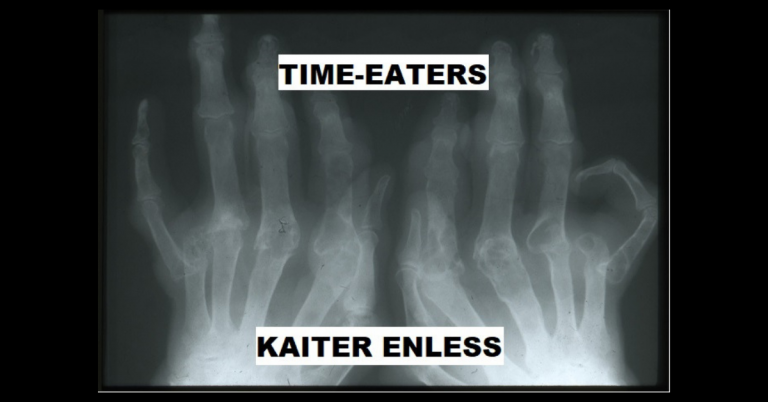
TIME-EATERS by Kaiter Enless
“I don't have no problem.”
“Sure seem like you do.”
He shook his head, a fractional gesture, noticeable only due the couple's proximity.
“Well, I don't. Was you what started yappin.”
She folded her arms below her breasts, turning slightly away, staring at nothing, muttering, “Fine.”
“Yeah. It is. Why you being this way, Lyla? Ain't never was like this between us before. Now, all a sudden, you're constantly screwing up your face, hmph-ing all over the place, snapping at me for no good reason, constantly try'n ta start something...”
“Ain't try'n ta start nothing.”
“Good, cuz there ain't nothing to start.”
She made an expression that was midway betwixt the spitting-upon-of-disgust and the-self-indulgent-sigh-of-petty transgression. Harmon Kessel finished his frozen yogurt, threw it in the parking-lot trash can and turned to his girl with a expression she could not place and then fished out a cigarette and stuck it between his blood-red lips and stood smoking and watching the gulls turn circles in the thermals above the pavement.
It was one big cliché. A stupid and boring one, Harmon thought to himself with mild irritation. This venomous exchange and the countless ones that had gone before it. He was not a intemperate man but his reserve – like as every others – had its limits and in Lyla's constant scrapping he was finding his. He blew a circle of smoke up and out over the parking lot before the ramshackle plaza, proud he'd remembered how.
“We've had this conversation before, Bluebird, and before we had it, we heard it.”
She turned to look at him from the corners of her eyes. He didn't like that. The way she side-eyed him as if he weren't worth the fullness of attention, as if he were merely a speck of colorful paint, floating at the terminus of all perception.
“What are you on about?”
“It's the same argument I always hear from couples – that everyone hears – whether its from memories of my parents or from the parents of my friends or from my friends, newly-wed, or from some book or movie. I've heard it and so have you. I reckon people have been hearing it since they was able to do so. People arguing bout nothing. Eating up time. We're time eaters. Time eaters what pay no mind to whats on their plate. That's our problem as a species.”
She cracked an awkward smile, frailer and less broad than it used to be. He dearly missed the way she used to smile, a little slice of moon with the twin suns of her dark coffee eyes shining above it.
“Anyone ever tell you that you're strange?”
Harmon took a drag, considering. Nodded and spoke flatly.
“Bout once a week nowadays.”
“Can't say I'm surprised.” She was flipping through her phone now, less than half-listening. Harmon took another drag, his expression falling into a drab blankness. He'd meant the statement as a joke. She used to laugh at that sort of thing, at his dry, off-kilter humor drive by flat overstatements of the commonplace. Just two years ago she'd have been cackling like a hyena. Now she couldn't seem to tell when he was being serious or not. Harmon thought maybe in him some fault lay for that; maybe he was too serious, too tense on the thread of life, like as his father had said. He never smiled anymore. It was just his way. One of the gulls swooped down to the parking lot and pecked a greasy hamburger wrapper that some litterbug had left behind. Prodding with its baldish beak til it found a fry. As Harmon watch it abscond with its prize and flutter up into the shine he wondered why he couldn't feel sadness. Given the situation, it seemed appropriate; like as it would be the normal response. For all Lyla's accusations of peculiarity, Harmon had always considered himself a relatively normal person. Average in most ways. Average height, average looks, or maybe, a little above average looks, average job ghostwriting with under average pay, average build, maybe leaner than most. Lean but muscular. It was only when it came to his mind that any peculiarities began to manifest themselves, odd turns of phrase and archaic words which pleased his ear and so oft poured from his lips; ruminations on the state of things that seemed beyond all ken, save his own. His grandfather had once said that Harmon spoke like a man that were unweaving a secret loom that only he could see. The random girls at the bar thought it was “sophisticated,” their boyfriends “pretentious,” Harmon's amiable acquaintances just said he “talked funny.” He took a long drag of the fervid Fortuna and thought on the phrase “amiable acquaintances.” Most of what he had that were social were such. He reckoned he didn't have any friends. Not anymore. None save Lyla. Only she was different. Friend and lover. Sweetheart since high school. A bond worked for nearly 12 years. Most of the others he'd withdrawn from. He liked his solitude and hated hypocrites, whiners and backstabbers of every stripe and in his estimation the great writing mass were usually some combination of the aforementioned. His snail-like ways had never caused him any trouble, like some he'd knew who'd moan about being misunderstood. Most people weren't hard to understand and if one found oneself alone it was only for two reasons: because one were worse than all or because one were better and didn't seek to lead. Harmon knew he weren't the latter as the socially ostracized were merely the plaything of the moment for him, no different than changing a tire or scaling a blue gill. Just another thing to do. But he wasn't too sure about the former.
He looked away from the gull. Back to his girl.
She was still on her phone, drifting towards the passenger-side door.
“I've gotta meet, Serena.”
“Right, right. Art show.”
Harmon finished off his cigarette, dropped it to the blacktop and crushed it out beneath his heel with a faded serpentine hissing and then got in after the girl and drove out of the frozen yogurt shop where they'd shared their second kiss, the gravel sputtering beneath the ceaseless, half-deflated wheels of the battered 1990 Ford Escort Hatchback.
He looked over at her and smiled.
“I had a good time with you. Been too long, Bluebird.”
“Yeah.” She replied without excitement, gaze still fixed to her phone, as if afraid to look up. He guessed she was still talking to Serena or one of her other art school friends he'd never met.
His smile faded and he drove the rest of the journey in silence, smoking and tapping the ash out the crack of the window and watching it sputter in butterfly whorls into the oblivion-warp beyond the ambit of the roiling machine.

